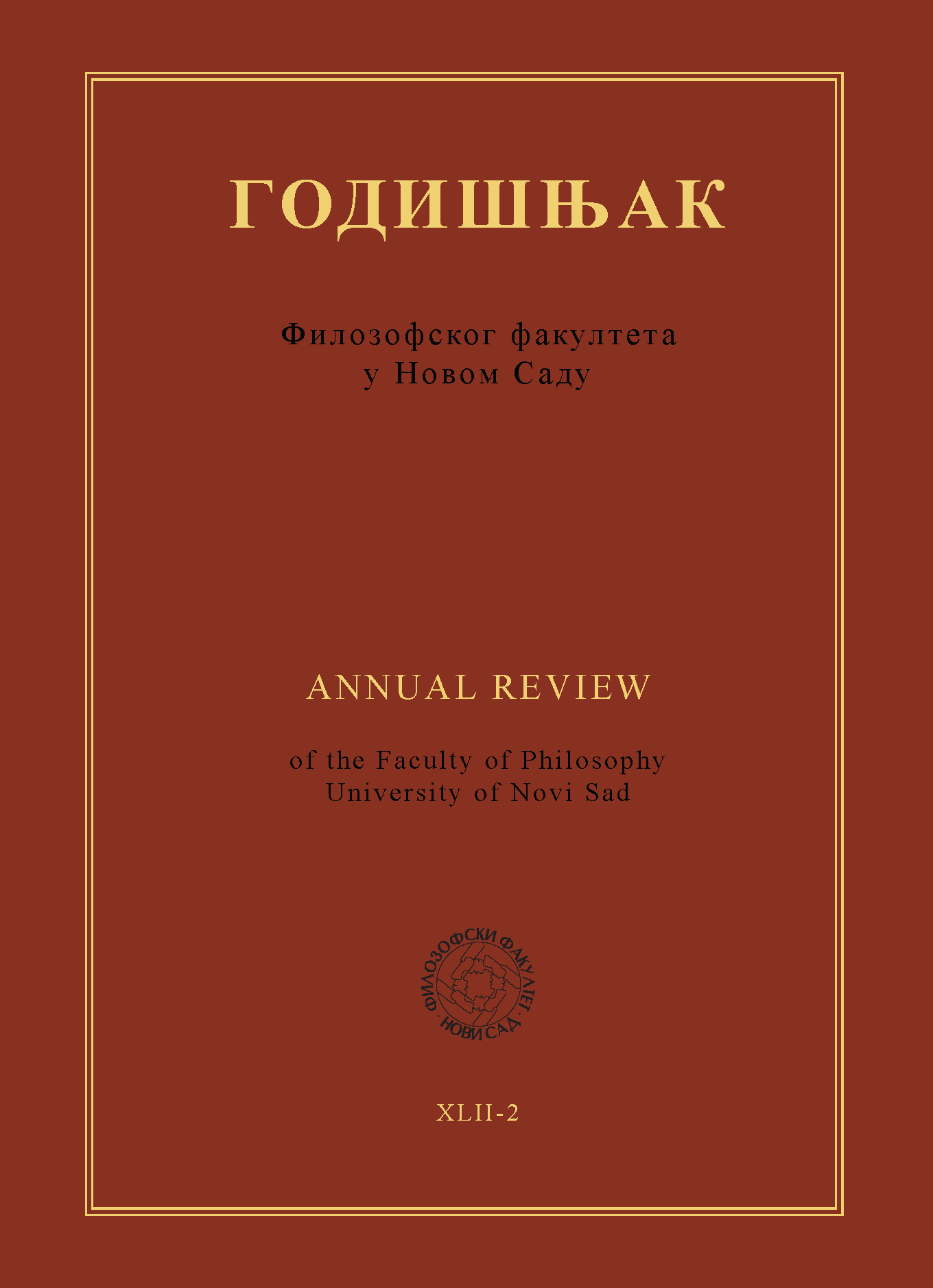Porodični odnosi i funkcije socijalno ugroženih porodica – studija slučaja
Главни садржај чланка
Сажетак
Summary
Family relations and the functions of
socially endangered families – a case study
The basic hypothesis of this research indicates the existence of the differences in the relations and family functions in socially endangered families in comparison with the theoretically established relations and functions in the majority of families in the contemporary Serbian society. The framework for studying this problem was the method of case study and reliance on a large number of sources of data such as deep interviews, documents of the Social Services of the town of Novi Sad, the informants’ letters, interviews with social workers, reports of people in charge of cases, statistical data etc.
The paper analyzes seven different socially endangered families, their life histories and ways of establishing family functions.
The research shows that family functions were not fully accomplished and that some functions did not exist at all. These are most frequently the economic function and the function of child protection. Economic inactivity, reliance on social welfare and occasional participation in grey economy are characteristic for the majority of socially endangered families.
Not performing economic function greatly affects not performing in other family functions as well. The research has indicated that different patterns of behaviour and not performing functions are surely a result of the constant reliance on the programmes of social welfare of socially endangered families. These programmes in no way represent a permanent solution of existential problems of socially endangered families, which is the greatest misconception of the users of these programmes. Contrary to general beliefs, they influence the passivization of family members and prevent changes in distancing from poverty culture. The examples of families who “solved” their financial problems indicate that economic factors are in the majority of cases crucial for normal functioning of families. It seems that solving financial problems represents an incentive for performing other family functions.
Key words: family functions, poverty, socially endangered, method of case study, qualitative research.
Downloads
Детаљи чланка
Референце
Babović, M. (2011). Socijalno uključivanje: koncepti, stanje, politike, Beograd: Secons.
Bobić, M. (2003). Prekomponovanje braka, partnerstva i porodice u savremenim društvima, Stanovništvo 1-4: 65-91.
Bogdanović, M. (1993). Metodološke studije, Beograd: Institut za političke studije.
Bradshaw, T. (2006). Theories of Poverty and Anti-Poverty Programs in Community Development, RPRC (Working paper, No 06-05).
Vilić, D. (2013). Transformacija (i/ili redukcija) funkcija moderne porodice, Sociološki diskurs, god. 3, br.5:49-65.
Vilić, D.- Nišić, V. (2015). Siromaštvo – društvena pojava (i proces) u globalnom društvu, Radovi, br.21, sv.1: 1-22.
Drezgić, R. (2008). Od planiranja porodice do populacione politike – promena vladajuće paradigme u srpskoj demografiji krajem 20. veka, Filozofija i društvo, 2008/3:181-215.
Driscoll, A. - Nagel, N.G. (2008). Poverty and the effects on the children and parents, The world of children, Families and educators, 188-189.
Haralambos, M.- Holborn M. (2002). Sociologija - teme i perspective, Zagreb: Golden marketing.
Kolin, M. (2008). Obrasci života u siromaštvu i nove paradigme Evropskeunije, Sociologija, Br.2.
Lewis, O. (1966). The Culture of Poverty, The Scientific American, No 4, Vol 2015: 19-25.
Luis, O. (1985). Kultura bede, Časopis za teoriju i sociologiju kulture i kulturnu politiku, br.70: 14-27.
Mijatović, B. (2014). Siromaštvo u Srbiji u 2014. godini, Beograd: Tim za socijalno uključivanje i smanjenje siromaštva.
Milić, A. (2009). Porodice u Srbiji danas u komparativnoj perspektivi, Beograd: Institut za sociološka istraživanja Filozofskog fakulteta.
Milić, A. (2010). Vreme porodica:sociološka studija o porodičnoj transformaciji u savremenoj Srbiji, Beograd: Institut za sociološka istraživanja Filozofskog fakulteta.
Minić, V. - Kompirović, T. (2014). Funkcije i problem savremene porodice u vaspitavanje dece ranog uzrasta, Zbornik radova Učiteljskog fakulteta, Prizren Leposavić, br.8: 27-40.
Preradović, Lj. (2017). Nemaština stisla i mlade, Večernje novosti, objavljeno 13. februara
Radovanović, M. (1976). Teorija kulture bede, Časopis za teoriju i sociologiju kulture i kulturnu politiku, br. 33/34: 54-72.
Spicker, P. (2007). Definitions of poverty: eleven clusters of meaning, Poverty: an international glossary, 229-243.
Stojšin, S. (2015). Prednosti i nedostaci izvora za istraživanje siromaštva, Sociološki godišnjak, Časopis Sociološkog društva Republike Srpske, br. 10: 363-376.
Stojšin, S. (2014). Poverty – Problems Of Defining, Operationalization And Measuring, Socio-economic forms of inequality - proceedings, Editors A. Lošonc, A. Ivanišević (129-141), Novi Sad: University of Novi Sad, Faculty of technical sciences.
Tomić, V. (2007). Siromaštvo i socijalna isključenost- osnovni pojmovi i indikatori, Sociološka luča, I-2: 149-166.
Tomanović, S.- Ljubičić, M. - Stanojević, D. (2014). Jednoroditeljske porodice u Srbiji – sociološka studija, Beograd: Čigoja.
Towsend, P. (1979) Poverty in the United Kingdom – A Survey of Household Recources and Standards of Living, (elektronski izvor) Penguin Books, http://www.poverty.ac.uk/system/files/townsend-book-pdfs/PIUK/piuk-whole.pdf.
Cvejić, S. (2006) Strukturni efekti siromaštva u Srbiji, u Društvo u previranju, r. Tomanović, S. Beograd: ISI FF.
Zakon o socijalnoj zaštiti, Službeni glasnik Republike Srbije, 24/2011.




